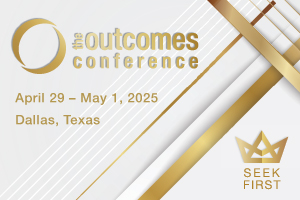
Top 3 Board Mistakes by Dan Busby
How to Avoid 3 Common Board Mistakes
You may have been on a board where one or more of these three mistakes were made. Avoiding these mistakes will improve the effectiveness of your board.
MISTAKE 1: UNDERESTIMATING THE IMPORTANCE OF THE BOARD CHAIR.
Is the board chair just another board position — an equal among equals? Hardly! The board chair must be first among equals in three sensitive areas of board leadership that depend directly on personal character: integrity, trust and humility.
Is the person chosen to be the board chair the only person who is willing to serve? Does the fourth vice chair move up to become the third vice chair? The third vice chair becomes the second vice chair. Well, you get the idea.
The board’s approach to selecting its chair speaks volumes about the importance the board places on this key position. And the quality of the chair selection process may well determine the effectiveness of the board. Whatever the process, without the call of God upon the board chair, we cannot expect the board chair to give the task the highest priority of time, energy and resources.
MISTAKE 2: ALLOWING THE “ER FACTOR” TO GO UNCHECKED.
When new board members are chosen, we always hope that the new members will create value in their board work. One thing is crystal clear: board members either create value or extract value; few board members are in between.
Extracting value in the boardroom can come in various forms. One of the most common ways value is extracted is when a board member puts I over us. The alternative is for board members to place we over me to create value.
If a board member extracts value, a downward spiral occurs in the boardroom. The spiral is multiplied by the ER factor. This stands for two components that are always prominent in value extraction: ego and rivalry.
As Randy Ross and David Salyers note in their book Remarkable (Baker Books, 2016), ego often leads a board member to elevate self over others by posturing as smart-ER, strong-ER, bright-ER, which essentially means bett-ER than others. This creates a competitive atmosphere in the boardroom, where there is a clear winn-ER and a clear los-ER.
Bottom line: During every board meeting and in between board meetings, board members are either making withdrawals or making deposits to good governance. When value extractions exceed or nearly exceed value creation, a board member is at risk of outliving his usefulness to the board.
MISTAKE 3: FAILURE TO APPLY DISCERNMENT TO KEY BOARD DECISIONS.
Why do drivers turn in front of motorcyclists? In their book The Invisible Gorilla (Crown Publishers, 2009), authors Christopher Chabris and Daniel Simons say that people don’t see motorcyclists because they aren’t looking for them. So, how do motorcycle accidents with autos translate to the boardroom? Very simply: what boards regularly look for is what they see. What boards do not regularly look for, they are much less likely to see. It comes down to priorities — to focus.
Even if a board focuses on all of these important issues, did they also focus on opportunities to discern God’s will for the ministry?
Is discernment vital in every element of governance? No. There are many perfunctory actions taken by a board, such as approval of board minutes, approval of reports and more. Yet there are many agenda items where discernment is vital. I will suggest a few: choosing the board chair, choosing new board members and approving significant program changes.
Ruth Haley Barton in her book Pursuing God’s Will Together: A Discernment Practice for Leadership Groups (InterVarsity Press, 2012) suggests that “discernment is the practice of recognizing the presence and activity of God.” As applied in the boardroom, discernment is a way of focusing, of seeing more clearly. It allows a board to develop what Barton calls an “intuitive sense of God’s heart and purpose at any given moment.”
Unless your board is focused on discernment in each meeting, you may fail to notice unexpected events, even ones that are important. Those unexpected events may be cues and clues from the Holy Spirit — an invitation to keep in step with what God is doing.
Placing proper importance on selection of the board chair, choosing board members who will create value in the boardroom and recognizing those key decisions requiring discernment are key factors in board effectiveness. And it will help you avoid big mistakes along the way.
####
Dan Busby is the president of ECFA an organization that accredits Christ-centered ministries in the areas of governance, financial management and steward- ship/fundraising. This is an excerpt from an article that was originally published in the 2016 Winter Outcomes Magazine.
The Outcomes Conference April 16-18, 2019 in Dallas, TX
 Early registration deadline is August 31, 2018!
Early registration deadline is August 31, 2018!
The Outcomes Academy Online – Fall Quarter 2019
 Registration deadline is September 24, 2018!
Registration deadline is September 24, 2018!





